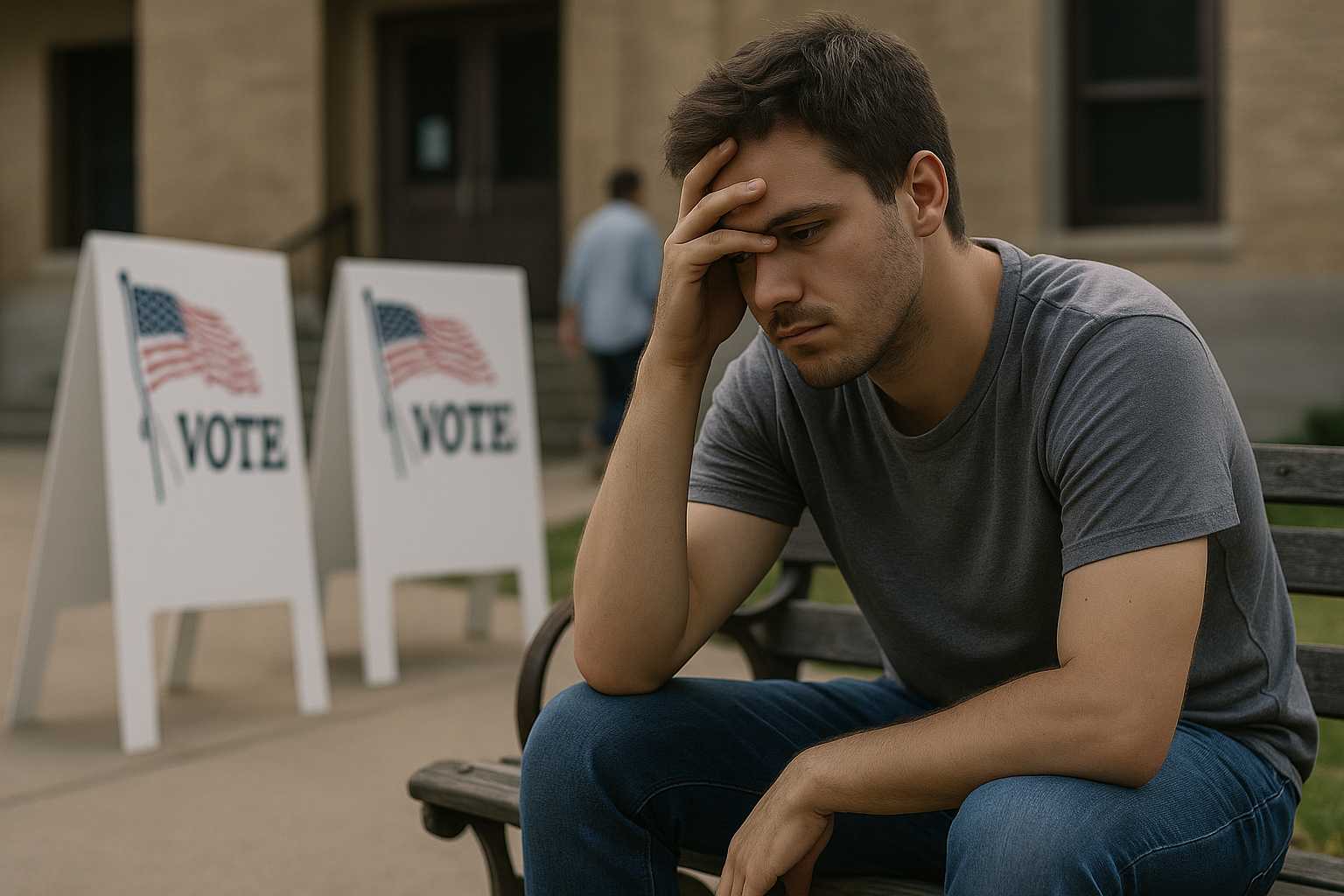Every election season, headlines scream about record turnouts — yet millions of Americans never show up. The uncomfortable truth? Roughly 1 in 3 eligible U.S. citizens don’t vote at all. This silent majority has the power to swing elections, shape policies, and change futures — but instead, they stay home.
Why? The answers are complex — but they’re urgent and must be acted upon by high schools and universities.
📊 The Numbers Don’t Lie: Voter Participation by Age
Here’s a snapshot of U.S. voter turnout by age group in recent national elections (based on Census and Pew Research data):
| Age Group | Estimated Turnout Rate (2020) |
|---|---|
| 18–29 years | ~51% |
| 30–44 years | ~58% |
| 45–64 years | ~71% |
| 65+ years | ~74% |
Younger voters are consistently the least likely to vote — even though they will live the longest with the consequences, such as:
-
Uncontrolled government spending
-
The growing $36 trillion national debt
-
Burdens passed to future generations
-
Reduced essential services from an insolvent government
Taxation without representation is tyranny — and letting others cast votes while you stay silent is no different.
🏫 A System That Fails Civics
One key cause of apathy? We don’t teach the responsibilities of citizenship well enough.
Most U.S. high schools provide minimal, outdated civics education. Students may learn about the three branches of government or memorize the Bill of Rights, but few are taught:
-
✅ How to register and vote
-
✅ Why local elections matter
-
✅ How policy affects their daily lives
-
✅ How to hold leaders accountable
When young people graduate without understanding how democracy depends on their voice, it’s no surprise they opt out.
😐 “My Vote Doesn’t Matter” — The Young Voter Mindset
Talk to many people in their 20s and 30s and you’ll hear the same things:
“It’s all rigged.”
“Both sides are the same.”
“Nothing ever changes.”
“I don’t know enough to vote.”
These aren’t lazy excuses — they reflect disillusionment with a system that seems distant, corrupt, and ineffective. But not voting only deepens that disconnect — giving more power to those who already have it.
✅ Why It Matters — and What We Can Do
Every policy — from student debt to healthcare to climate change — is shaped by people who show up. When young people don’t vote, older generations (and their interests) dominate decisions.
What needs to change:
☑️ Better Civics Education
Make modern, practical civics a core subject — including voter registration, news literacy, and local activism.
☑️ Peer-to-Peer Outreach
Young voters respond best to friends, not politicians. Campus groups, social media campaigns, and influencers can shift the culture around voting.
☑️ System Fixes
Simplify registration, expand early voting, and make Election Day a national holiday to remove barriers.
🗣️ Your Vote, Your Future
At iVoteMyVote, we believe every voice matters. But too many are choosing silence — especially in the most critical years of their lives.
Whether you’re 18 or 80, voting isn’t just a right — it’s a responsibility.
Democracy doesn’t work without you. So show up. Speak out. Vote.
💥 Want to make a difference right now?
-
✅ Share this blog with someone under 30
-
✅ Volunteer with a local civic group
-
✅ Follow @iVoteMyVote for tools, deadlines, and candidate updates



